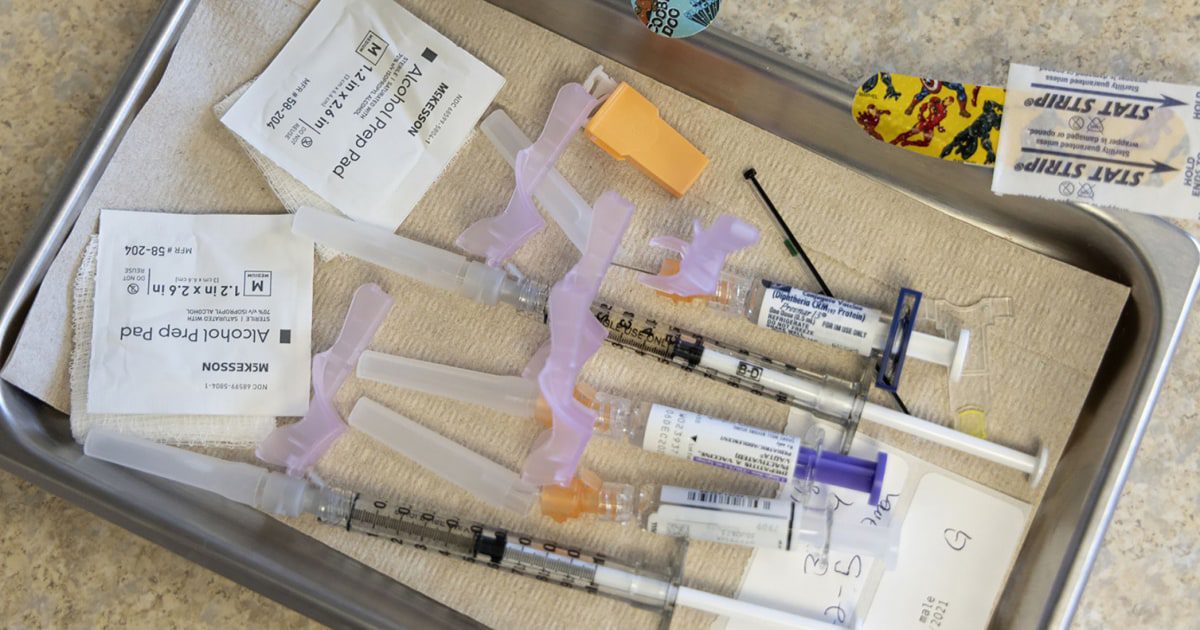
A total of fifteen measles cases have been reported in a small West Texas county, primarily affecting school-aged children. This region has one of the highest rates of vaccine exemptions in the state.
Zach Holbrooks, Director of the South Plains Public Health District, announced on Monday that the health department was alerted to the initial two cases in Gaines County in late January. These cases involved “two children who had visited a physician in Lubbock,” he stated.
Some of the reported cases seem linked to private religious schools within the district, according to Holbrooks, who emphasized that the investigation is still in progress.
“I wouldn’t say they’re all related, but our teams are currently exploring exposure sites and the circumstances surrounding these cases,” he explained.
In response, local health authorities established a drive-through vaccination clinic last week, providing screening services to community residents.
In 2024, the U.S. has experienced an increase in measles cases, including a notable outbreak in Chicago that affected over 60 individuals. This month, health officials in metro Atlanta are addressing a case that spread to two family members who were unvaccinated.
In Texas, parents can claim exemptions from required vaccinations for their children due to personal beliefs, including religious convictions. The percentage of children with exemptions has increased over the past decade, rising from 0.76% in 2014 to 2.32% last year, as reported by the Texas Department of State Health Services.
Gaines County exhibits one of the highest exemption rates for required vaccinations among school-aged children, with nearly 14% of students from kindergarten to grade 12 opting out during the 2023-24 school year. This rate is more than five times higher than the state average of 2.32% and exceeds the national average of 3.3%.
However, DSHS spokeswoman Lara Anton indicated that the actual number of unvaccinated children in the county could be significantly greater. Many children are homeschooled, and their vaccination statuses may not be included in public reports.
The measles, mumps, and rubella (MMR) vaccine is a two-dose series. The first shot is recommended between 12 to 15 months of age, while the second is administered between 4 to 6 years. This vaccine is a requirement for attending most public schools across the United States.
Despite its importance, vaccination rates have dropped nationally since the onset of the COVID-19 pandemic, with the majority of states currently falling below the 95% vaccination threshold for kindergartners, essential for community protection against measles outbreaks. In response, legislators nationwide have proposed various changes to vaccine requirements, coinciding with the heightened influence of anti-vaccine activist Robert F. Kennedy Jr., who is awaiting confirmation as the secretary of Health and Human Services.
One of the initial cases from Gaines County traveled to neighboring New Mexico while still infectious, as noted by Anton, though no immediate secondary infections have been reported. New Mexico health officials did not respond to a request for comment promptly.
Earlier this January, two measles cases emerged in the Houston area; however, Holbrooks stated that these incidents do not appear to be linked to the cases in West Texas.
Measles is a highly contagious virus capable of remaining airborne for up to two hours. Approximately 90% of unvaccinated individuals exposed to the virus will contract it, according to the U.S. Centers for Disease Control and Prevention. Before the vaccine’s introduction in 1963, the U.S. experienced approximately 3 million to 4 million cases annually; now, typical figures hover below 200 cases in a regular year.









